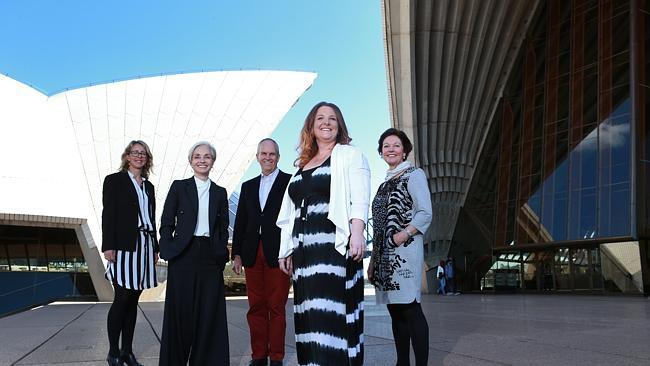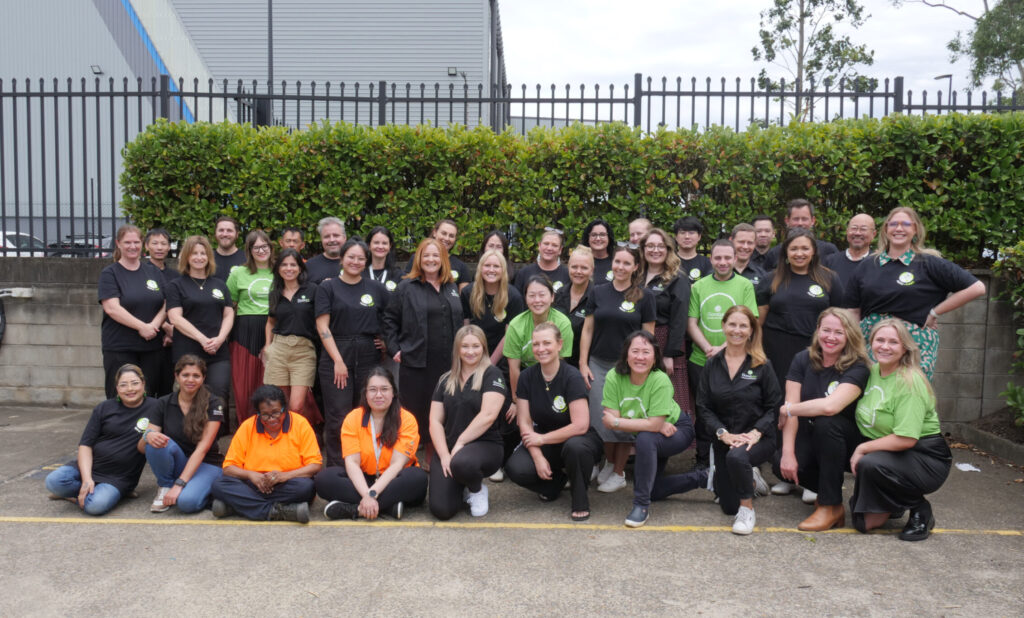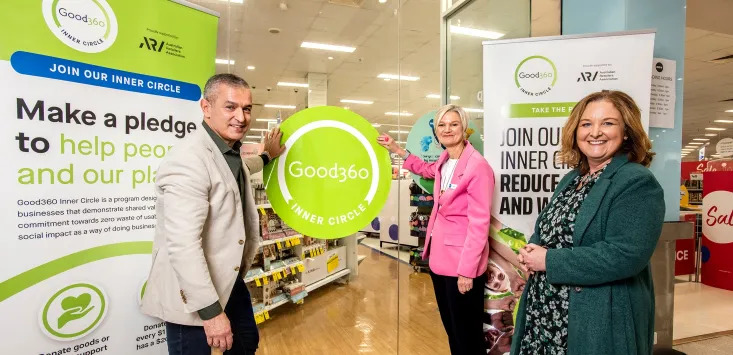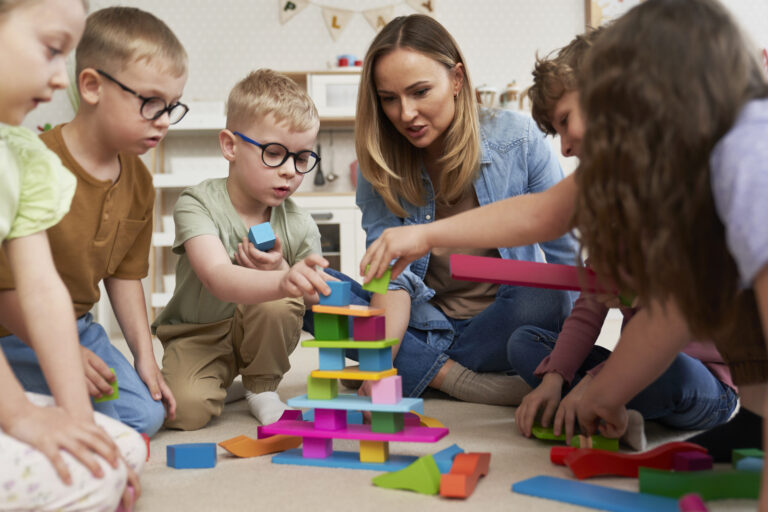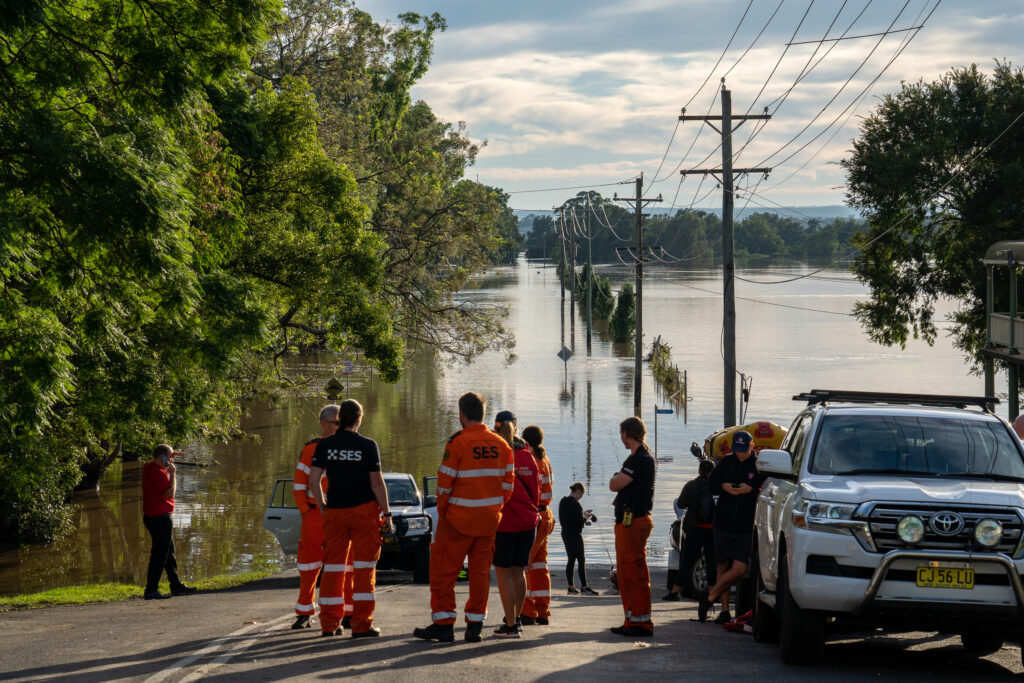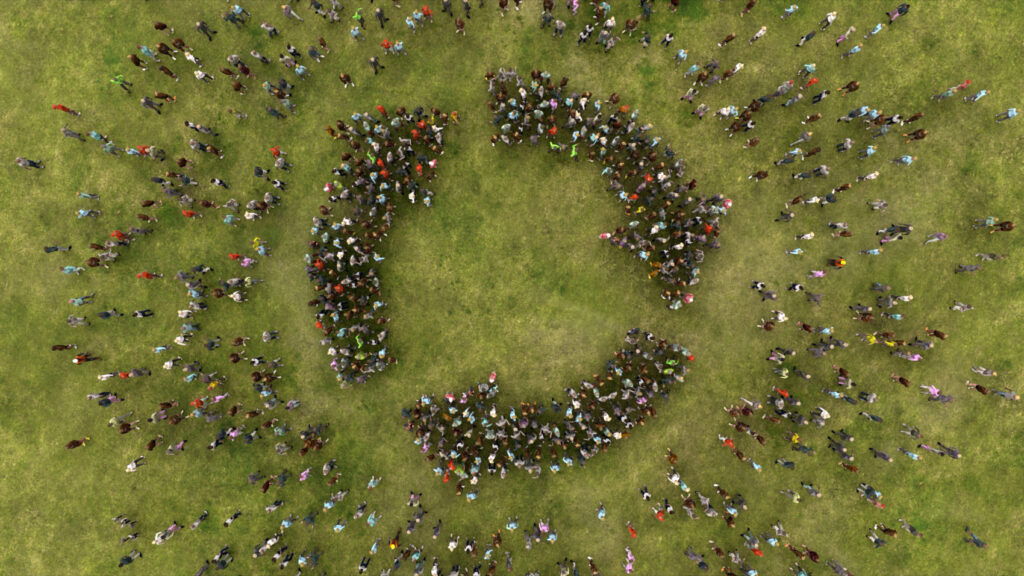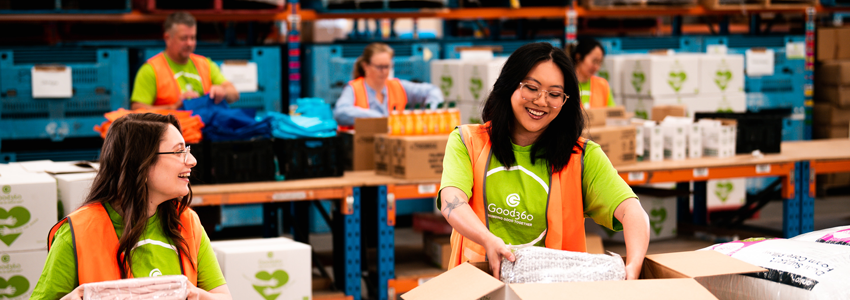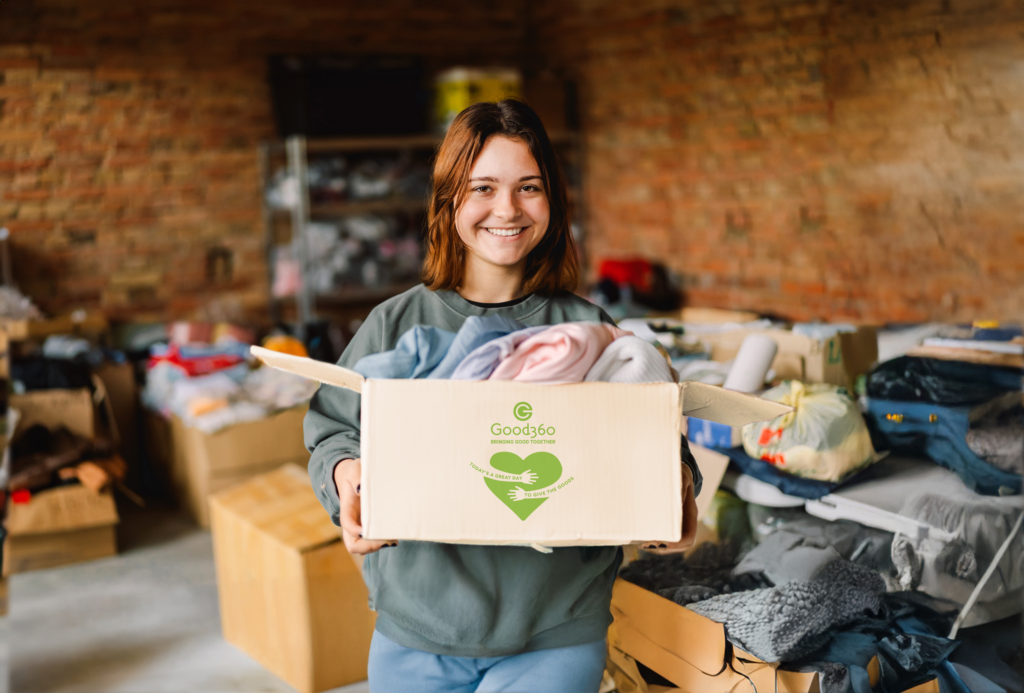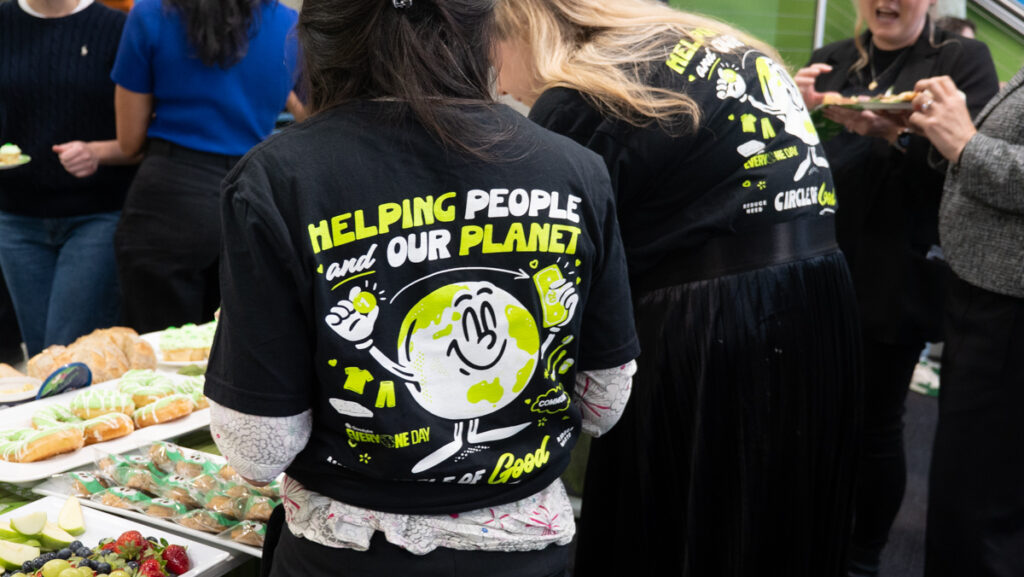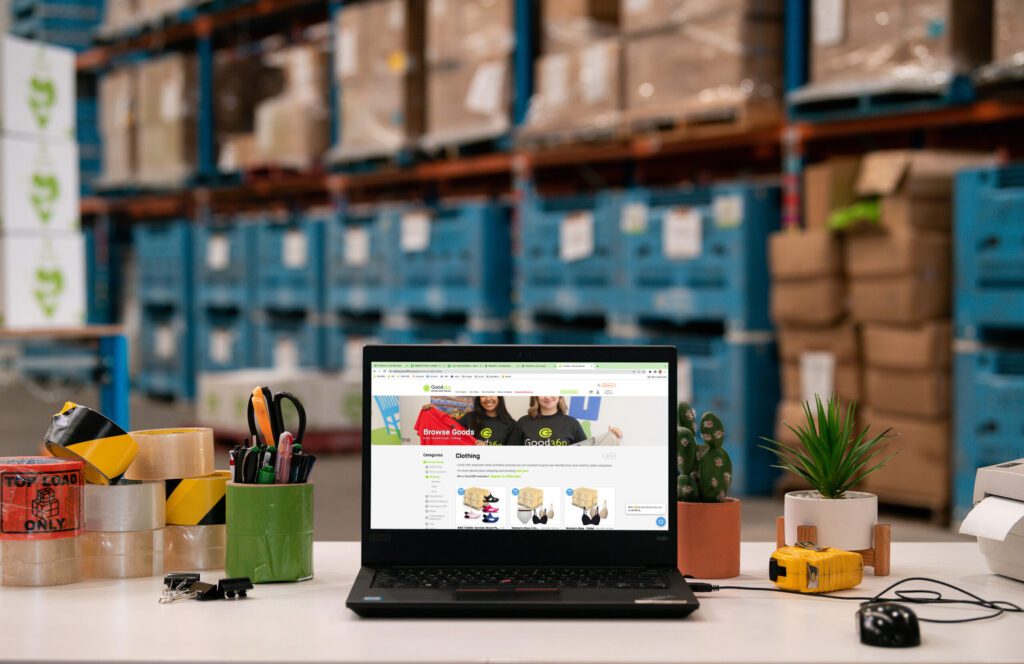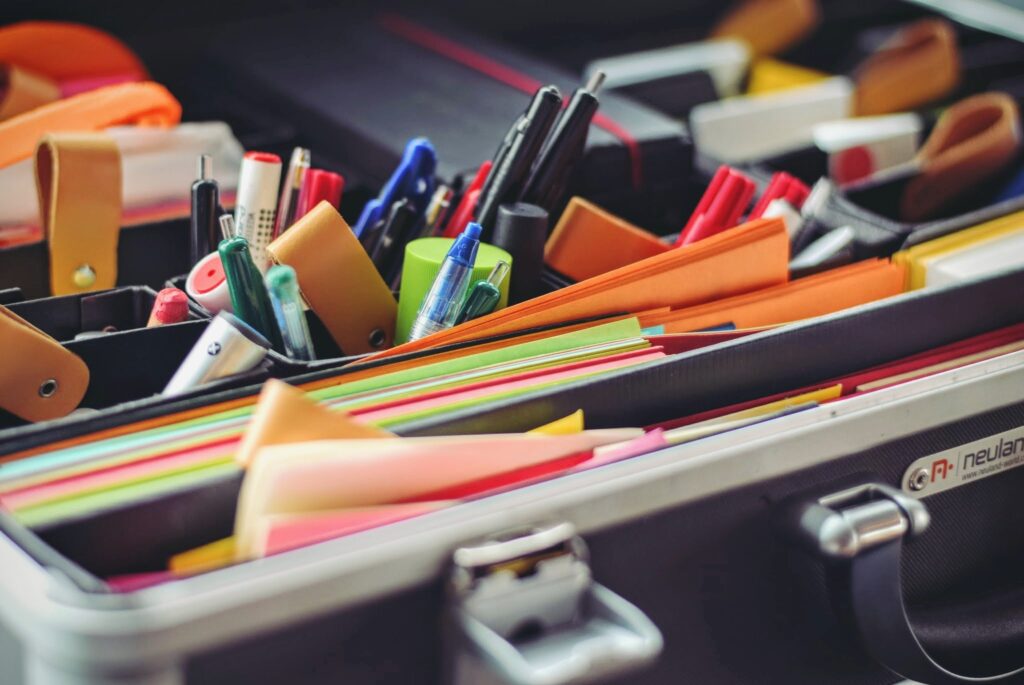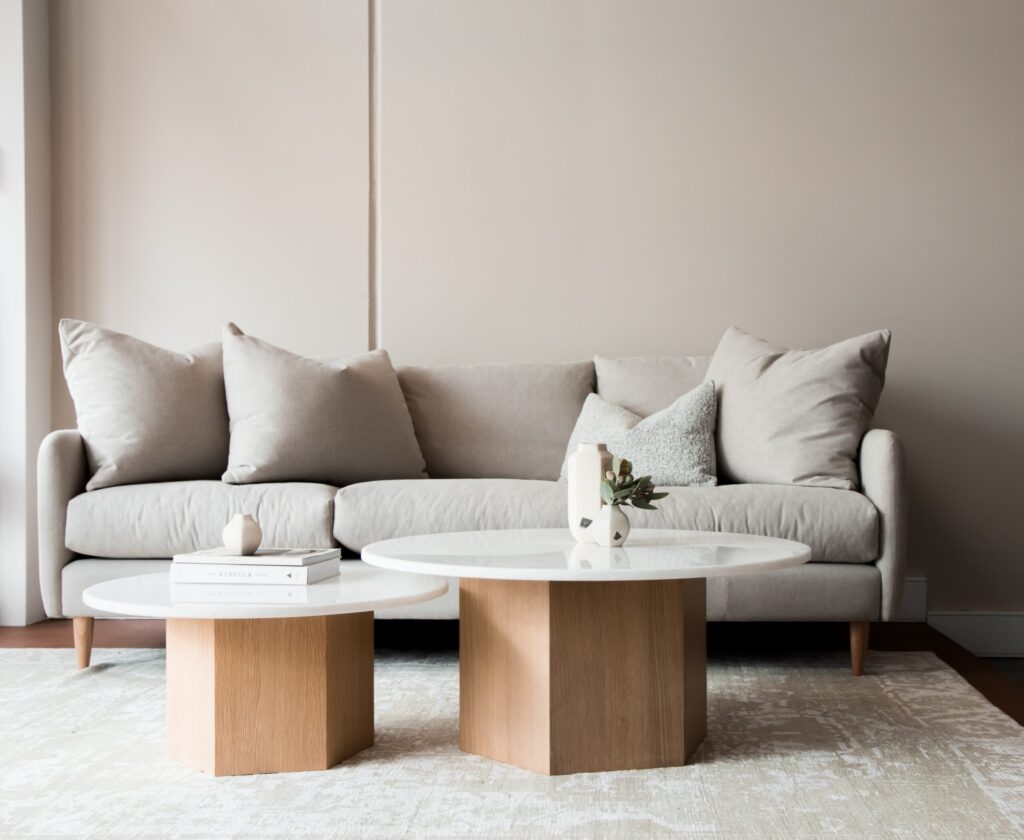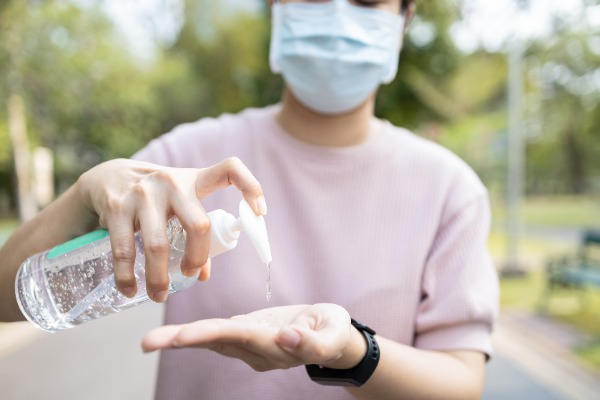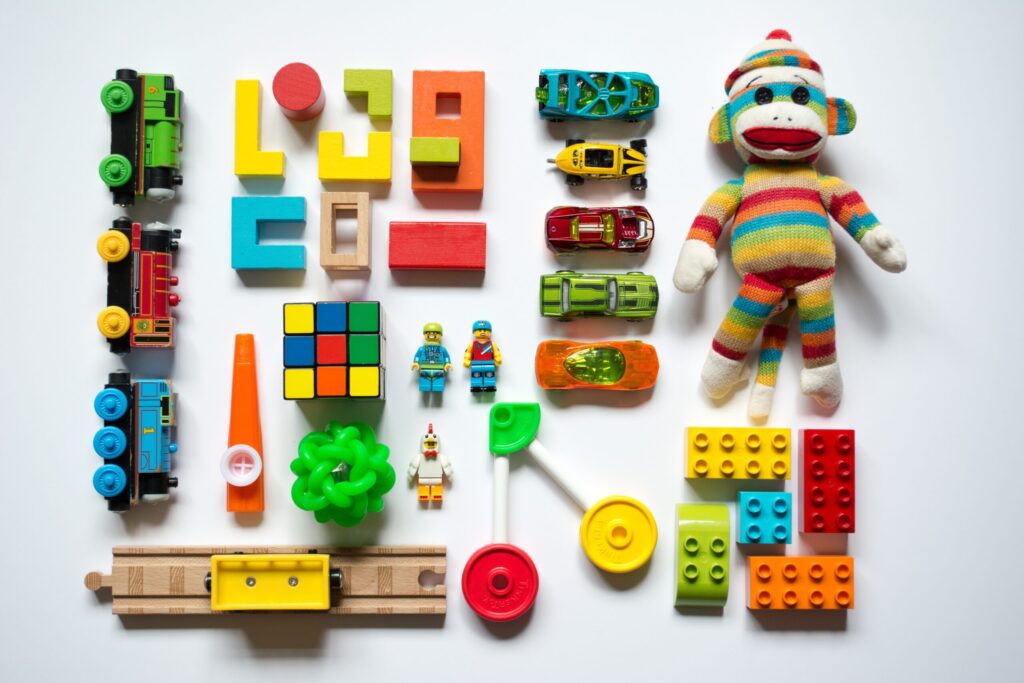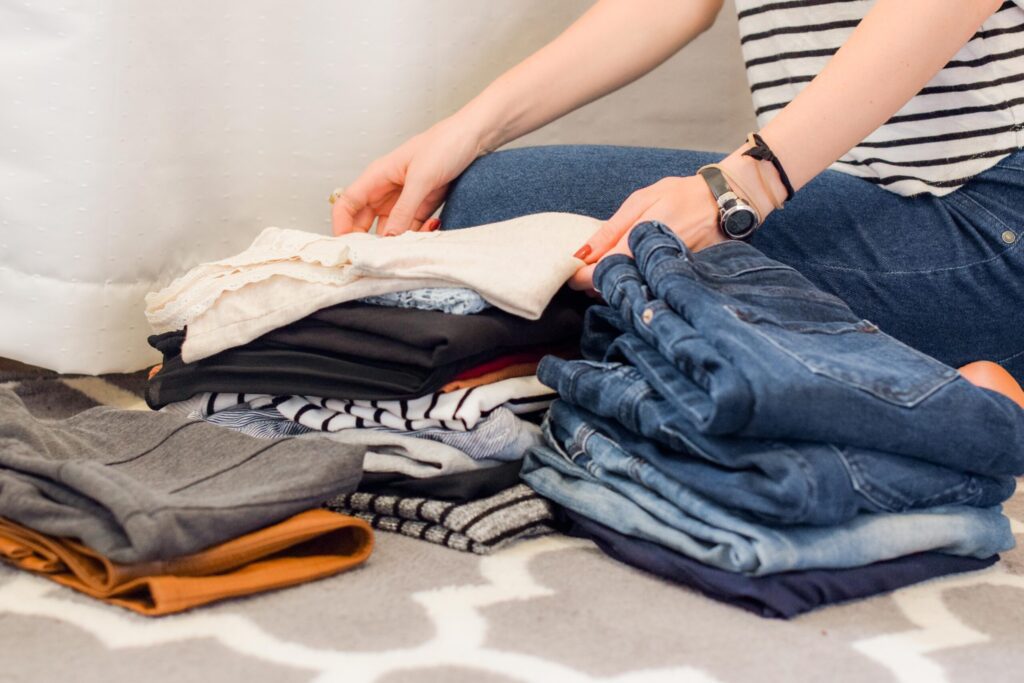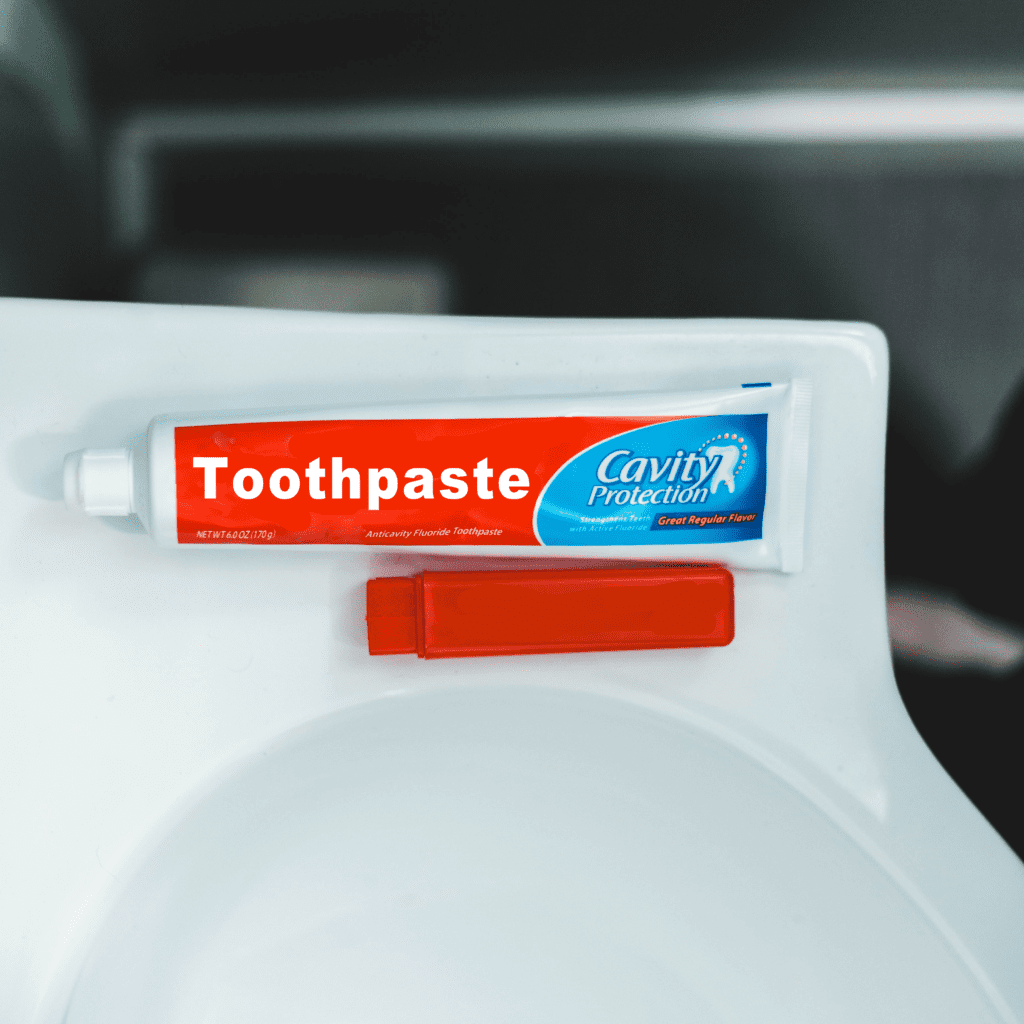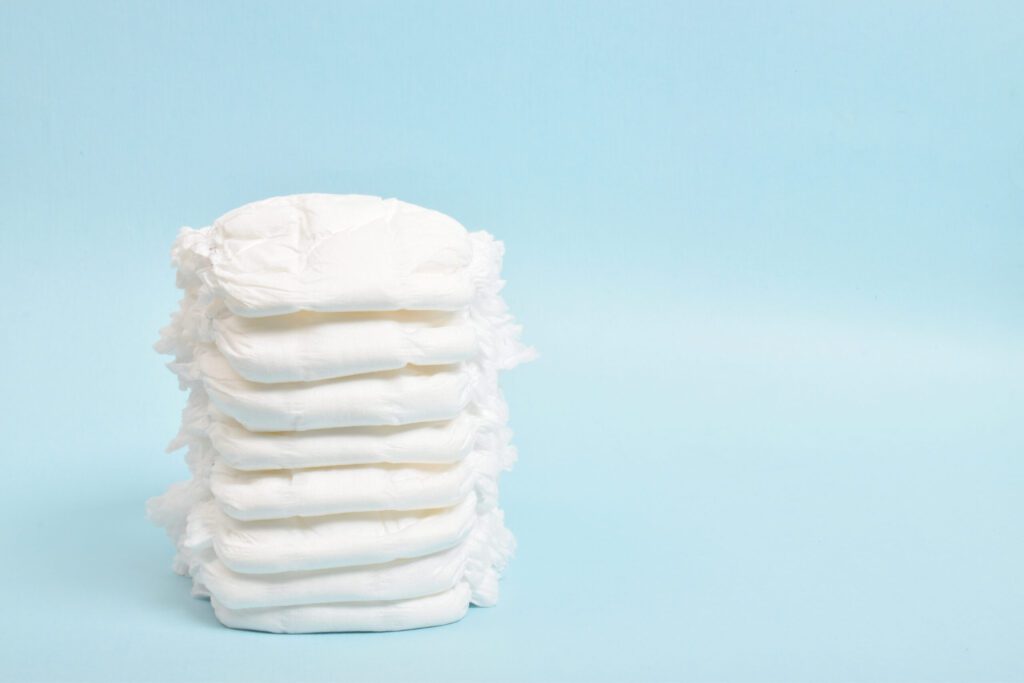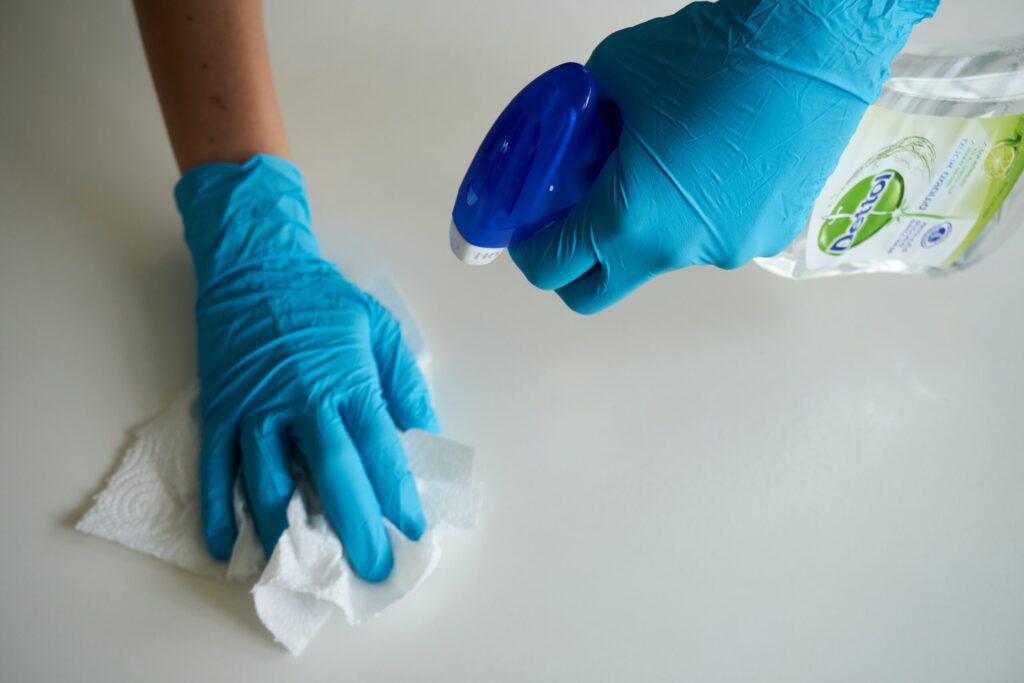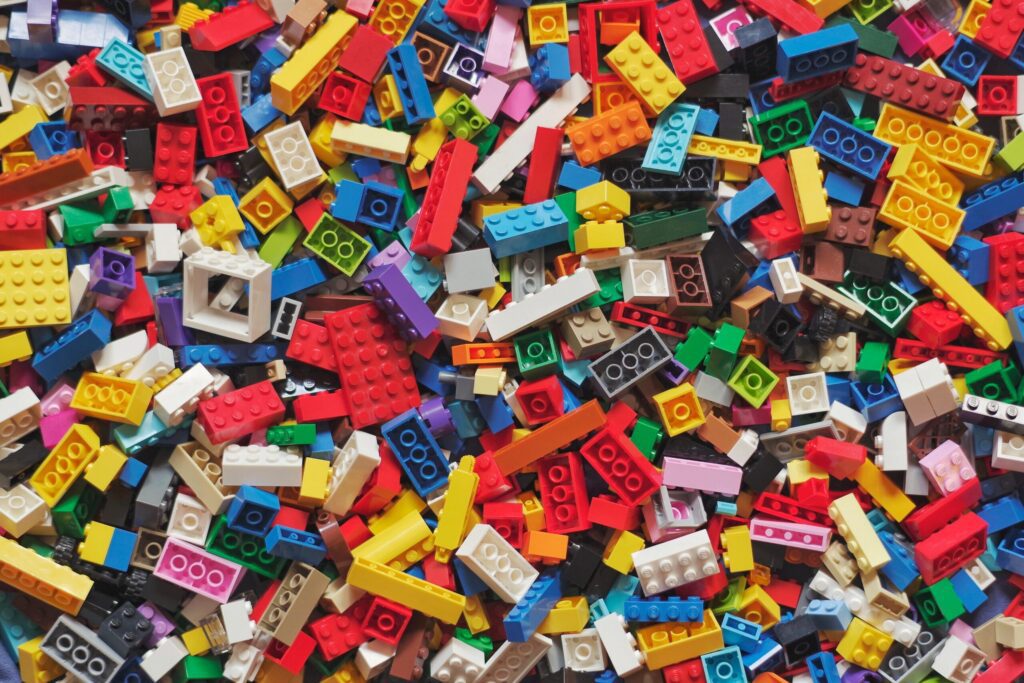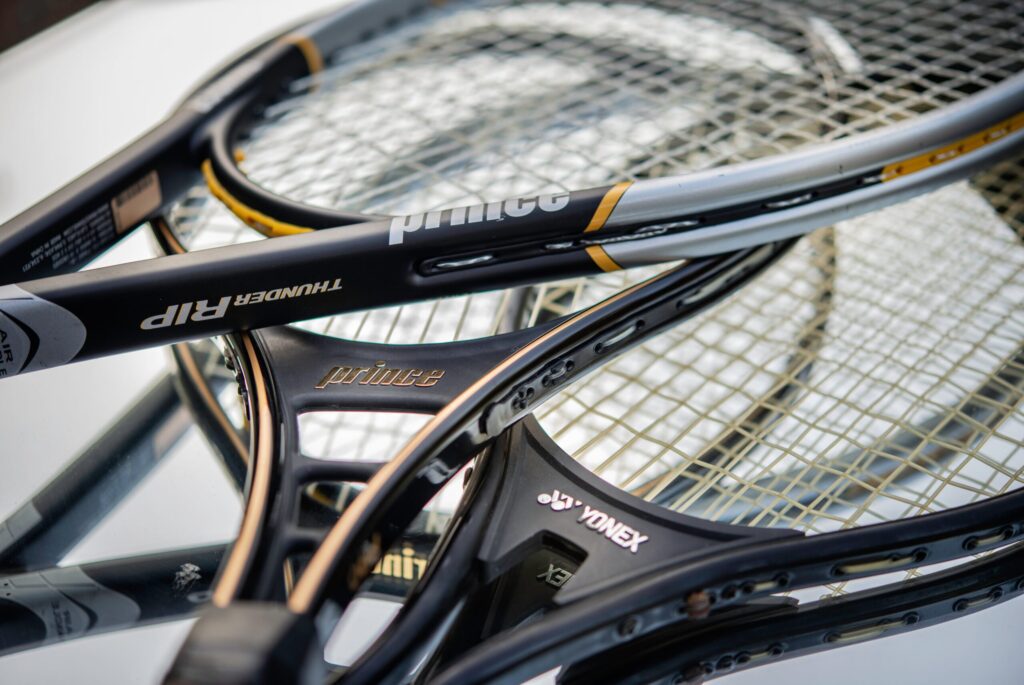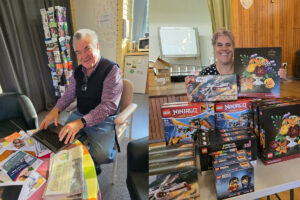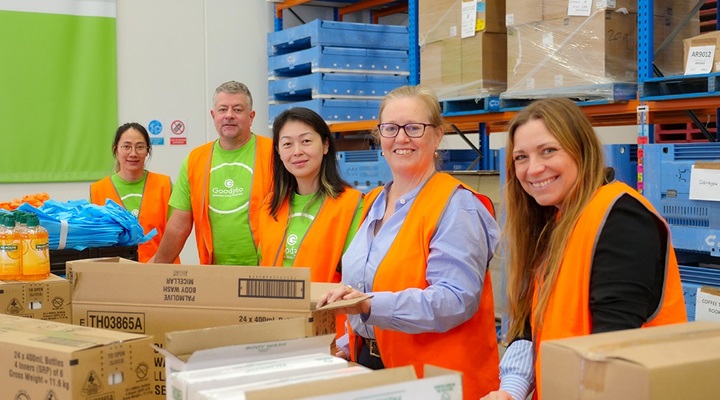Published on Power Retail on June 29, 2018 by April Davis
Alison Covington, the founder and managing director of Good360 is the face behind the scenes helping big-name brands like Kogan, Big W and Woolworths dispose of unwanted stock.
In 2016, the Australian Council for Social Services (ACOSS) issued its Poverty in Australia report that revealed 2.9 million Australians, or 13.3 percent of the population at the time, were living below the poverty line. This is something that struck Alison Covington as unfair. When she also realised that a lot of retailers were guilty of chucking their unsold stock into landfill, rather than utilising it, she started to ask questions.
For instance, Amazon’s business ethics were recently questioned when German television show, Frontal21 and magazine, WirtschaftsWoche, accused the e-commerce giant’s European operations of destroying functional products on a large-scale.
Knowing this type of practice was rampant across the industry, she decided to address it by establishing the Good360 brand. While sending stock to landfills might be an easy and cheap method of addressing excess and returned stock concerns, Covington wanted to find another way to put these unwanted products to use.

As such, Good360 was built with one goal in mind – to help connect retailers with excess stock, to local charities that are trying to help Australian’s in need. After three years and the redistribution of three million items to more than 800 not-for-profit organisations across Australia, it’s safe to say she has taken great strides towards achieving this goal.
“We aim to efficiently connect surplus goods from businesses to the charities and Australians who need them, whilst reducing waste and improving environmental outcomes,” she says.
“The business model is simple: member charities shop online on Good360’s e-commerce website for products donated from many of Australia’s leading brands (including L’Oréal, LEGO, BIG W and Moose Toys), they select the products they need in the quantities they need them and Good360 delivers their order directly to their door.”
According to Covington, this program gives charities access to discounts of roughly 90 percent, sometimes more if the product donors subsidise the shipping and handling costs.
Partnering with Australian Retail Brands and Charitable Organisations
Australian retailers operating both in the online and physical realm have responded well to Good360’s charitable business model, with household names like L’Oreal, LEGO, LUSH and local online marketplaces like Kogan, as well as Big W and Woolworths, all donating excess stock and new products to not-for-profits via Good360.

But in order for the business model to work, the company also relies on ongoing partnerships with charities that can help connect retailers to the people who are in need of assistance.
Covington says that Mission Australia, The Salvation Army and the Children’s Starlight Foundation are among those collaborating with Good360 and participating retailers. These charities help with the distribution of non-perishable items like electronics and stationery for school-aged children, personal care items, and clothing to families and individuals who are struggling to make ends meet.
Although to ensure the functionality of the operation at such a large scale, pro-bono partners are also a necessity.
“We have formed a successful, multi-year corporate partnership with Goodman for pro-bono office and warehouse space. We are lucky enough to have many partners who contribute pro-bono assistance to our operations.
“[These] pro-bono partnerships have enabled us to keep scaling and create an efficient business model. [For example,] Goodman has been very generous to partner with us for over three years with a further three-year commitment.”
Over the next 12-months, Covington believes these relationships will offer invaluable support as the business continues to grow.
“We are scaling fast, and due to the new distribution options that we will roll-out in 2018/19, we expect to receive an additional $50 million of goods over the next 12-months,” she says.
A Partnership in Action: Good360 and Big W
Big W first started working with Good360 in 2017. Since then, Covington says the retailer has helped to donate and distribute “400,000 brand new and unsold items to families across Australia via Good360’s charitable network of organisations”.
As well as providing a sustainable large-scale solution for disposing of unsold stock in an affordable and beneficial way, Good360 and Big W have both worked together to market the partnership.
This marketing material has come in the form of YouTube videos and social promotion, as well as online testimonials from the charities and everyday Australians who have benefitted from the partnership.
According to Big W’s Managing Director, David Walker, working with Good360 helps Big W manage its excess stock inventory.
“Partnering with Good360 is a perfect match with what BIG W has to offer. We want to help Australian families across the country and at the same time be responsible in how we manage our excess inventory. Together with Good360, we can make a great impact nationwide on communities in need,” he says.
Creating a sustainable business model is something that’s more important than ever for retailers, as consumer behaviour starts shifting towards environmentally-friendly consumerism
This is something brands like IKEA are recognising, with the introduction of its take-back service in Sydney, where consumers can return their second-hand IKEA furniture to its ‘Circular Pop-Up Store’ at IKEA Tempe in exchange for a store voucher. The second-hand furniture will then be re-sold to IKEA customers for the same price the company re-purchased the goods at.
A number of fast-fashion retailers are also jumping on the waste reduction bandwagon, with global brands like H&M taking steps towards integrating long-term sustainability plans that reduce the amount of clothing ending up in landfill.
Any donors wanting to make contact with Good360 should do so on the company’s website, or by emailing contact@good360.org.au.
“There is now no reason that new goods should go to landfill or sit idle in warehouses,” Covington says.

